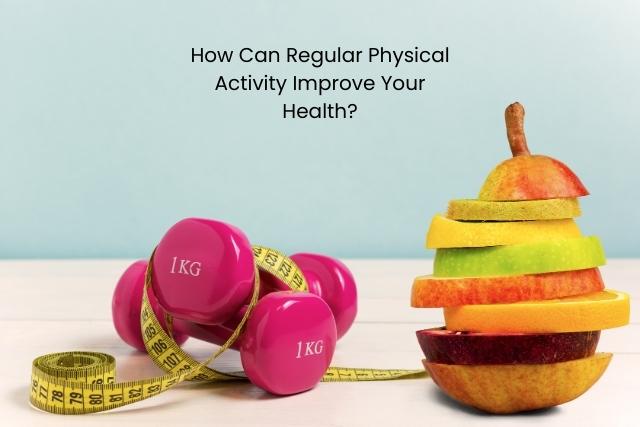Introduction:
In an era defined by sedentary lifestyles and the increasing demands of modern living, the importance of regular physical activity cannot be overstated. Engaging in physical exercise is not merely a choice but a fundamental necessity for maintaining and improving one's health.
The profound impact of regular physical activity on overall well-being is a subject of significant scientific research and public interest. This article explores the manifold ways in which embracing an active lifestyle can lead to remarkable enhancements in physical, mental, and emotional health.
From the cardiovascular benefits to the mental clarity it fosters, from the strengthened immune system to the mood-lifting effects, we delve into the compelling reasons why incorporating regular exercise into your daily routine is a vital step towards a healthier, more fulfilling life.
- Cardiovascular Benefits of Regular Physical Activity
- Enhanced Mental Health and Cognitive Function
- Strength and Flexibility: Building a Stronger Body
- Weight Management and Metabolic Health
- Boosting the Immune System Through Exercise
- Emotional Well-being and Stress Reduction in Active Lifestyles
Cardiovascular Benefits of Regular Physical Activity:
Engaging in regular physical activity significantly enhances cardiovascular health. Exercise strengthens the heart muscle, enabling it to pump blood more efficiently. This, in turn, improves blood circulation and reduces the risk of heart diseases, including heart attacks and strokes.
Regular exercise helps lower blood pressure and maintains healthy cholesterol levels. Additionally, physical activity promotes the dilation of blood vessels, ensuring smoother blood flow and reducing the strain on the heart.
Overall, these benefits contribute to a healthier cardiovascular system, reducing the chances of developing heart-related complications.
Enhanced Mental Health and Cognitive Function:
Regular physical activity has a profound impact on mental well-being. Exercise stimulates the production of endorphins, the body's natural stress relievers, promoting a positive mood and reducing symptoms of depression and anxiety.
Moreover, physical activity enhances cognitive function. It improves memory, attention, and creativity by stimulating the growth of new brain cells and fostering neural connections. Regular exercise has been linked to a reduced risk of cognitive decline and neurodegenerative disorders, such as Alzheimer's disease.
Engaging in physical activities that require coordination and balance, like dancing or yoga, further enhances brain function, promoting mental sharpness and agility.
Strength and Flexibility: Building a Stronger Body:
Physical activity, particularly resistance training and flexibility exercises, strengthens muscles and enhances flexibility. Strength training, involving activities like weightlifting or bodyweight exercises, builds muscle mass, increases bone density, and improves overall body strength.
This not only enhances physical performance but also reduces the risk of injuries and age-related muscle loss. Additionally, incorporating flexibility exercises like stretching or yoga enhances joint mobility and reduces muscle stiffness, promoting better posture and preventing musculoskeletal problems.
A strong and flexible body is more resilient, allowing individuals to perform daily tasks with ease and reducing the likelihood of chronic pain conditions.
Weight Management and Metabolic Health:
Regular physical activity plays a pivotal role in weight management and maintaining a healthy metabolism. Engaging in aerobic exercises like walking, running, or cycling burns calories and aids in weight loss or weight maintenance.
Moreover, muscle-strengthening activities increase the body's resting metabolic rate, enabling more efficient calorie burning even at rest. Physical activity also helps regulate blood sugar levels by improving insulin sensitivity.
This is crucial in preventing and managing type 2 diabetes. By promoting a healthy body weight and efficient metabolism, regular exercise reduces the risk of obesity-related diseases, such as diabetes, hypertension, and certain types of cancer.
Boosting the Immune System Through Exercise:
Regular physical activity enhances the immune system, making the body more resilient against infections and diseases. Exercise promotes healthy circulation, allowing immune cells to move freely throughout the body, effectively detecting and combating pathogens.
Regular moderate-intensity exercise has been shown to reduce the risk of upper respiratory tract infections, such as the common cold. Moreover, consistent physical activity supports the production of antioxidants and anti-inflammatory proteins, further strengthening the body's defense mechanisms.
While intense, prolonged exercise can temporarily suppress the immune system, moderate, regular activity significantly boosts immunity, providing long-term health benefits.
Emotional Well-being and Stress Reduction in Active Lifestyles:
Engaging in regular physical activity promotes emotional well-being and reduces stress. Exercise triggers the release of endorphins, neurotransmitters that act as natural mood lifters. This can alleviate symptoms of depression and anxiety, promoting a sense of overall happiness.
Physical activity also provides an opportunity for relaxation and serves as a healthy coping mechanism for stress. Activities like yoga and meditation, often incorporated into active lifestyles, not only enhance physical flexibility and balance but also promote mental tranquility and emotional stability.
Regular exercise can improve sleep quality, further contributing to emotional well-being by reducing fatigue and irritability. Additionally, the social aspect of group activities or team sports provides a sense of belonging and social support, fostering emotional resilience and reducing feelings of loneliness or isolation.
Overall, an active lifestyle not only strengthens the body but also nurtures a positive mindset and emotional resilience, enhancing the quality of life.
Conclusion:
I hope this exploration into the myriad benefits of regular physical activity has highlighted the transformative power it holds in enhancing our overall well-being. The evidence presented underscores the crucial role exercise plays in cardiovascular health, mental well-being, strength, flexibility, weight management, and immune system function.
By embracing an active lifestyle, we empower ourselves to lead healthier, happier lives. Regular physical activity is not merely a choice; it is a fundamental investment in our long-term health. It fosters resilience, both physically and mentally, enabling us to tackle life's challenges with vigor and positivity.
Moreover, the emotional balance achieved through exercise is invaluable in today's fast-paced world. As we prioritize physical activity, we not only improve our individual health but also contribute to a healthier society.
So, let us stride forward with the knowledge that every step, every stretch, and every moment of exercise is a stride toward a healthier, more vibrant life—a life where our bodies and minds thrive in harmony.








0 Comments